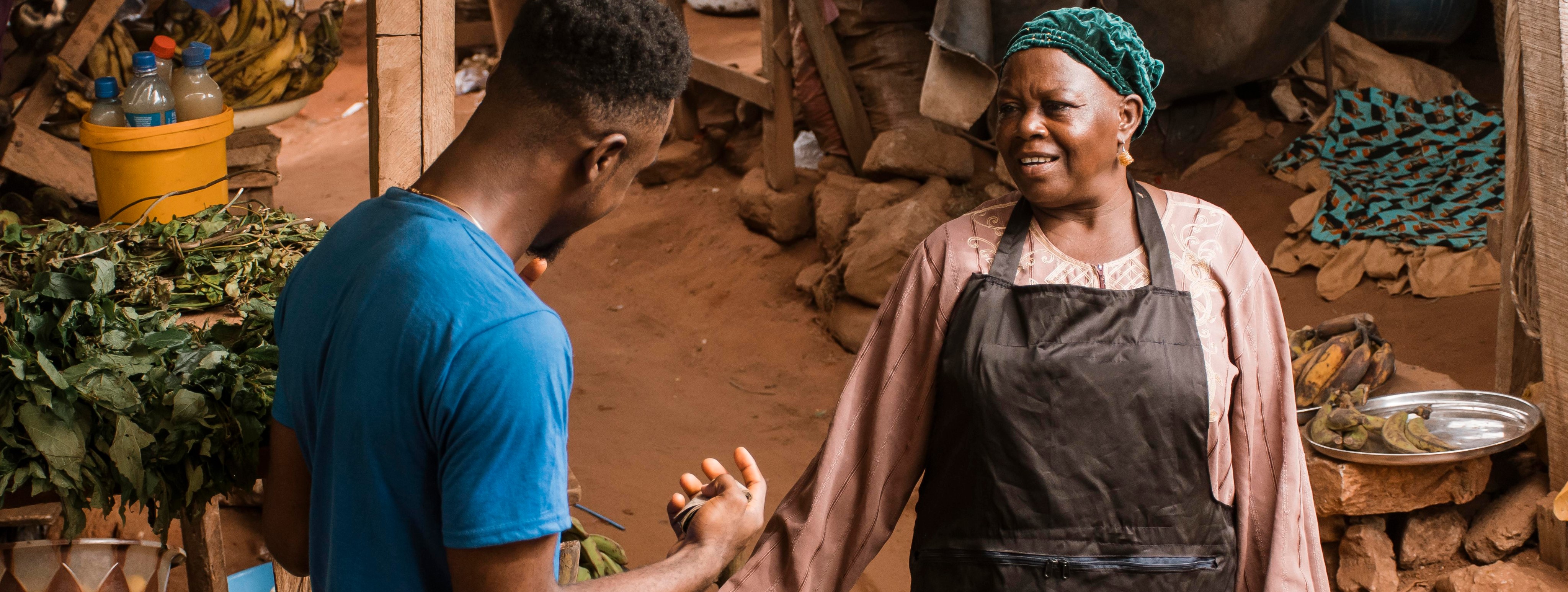
Introducing the first cohort of entrepreneurs accepted to the Technical Assistance Facility
Across Africa, an estimated 100 million people faced catastrophic levels of food insecurity in 2020. The latest data show that 40.2 million people in Central and Southern Africa, 32.9 million in East Africa, and 24.8 million in West and Sahel Africa faced food crisis and starvation.
At the same time, sub-Saharan Africa loses significant amount of food, with grains alone accounting for $4 billion a year. This is more than the value of total food aid received in sub-Saharan Africa over the past decade, and equivalent to the annual value of cereal imports. Reducing food loss and waste is essential to achieve a sustainable food future in Africa and globally. We need to move towards circularity and zero-waste principles in all areas of the food value chain, from production to consumption.
The Circular Food Systems for Rwanda program, funded by the IKEA Foundation, seeks to create a circular economy for food and promote sustainable food systems in Rwanda. The program is working to translate global ambitions of a circular economy on food systems into real outcomes.
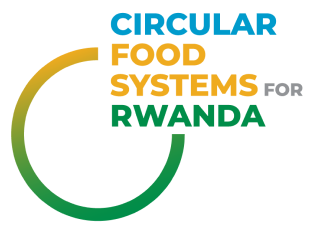
Rwanda has the unique opportunity to revolutionize its food systems through a circular economy. More than 70% of its population are involved in agriculture, with six million of them being small scale producers. The sector accounts for 33% of the country’s GDP. At the same time, UNEP’s Food Waste Index 2021 report estimates that Rwanda wastes a staggering 164kg of food every year. A transition to a circular economy could dramatically improve the economic, social, and environmental impacts of the food system.
Small and medium enterprises (SMEs) are the backbone of Rwanda’s economy, providing 41% of private sector jobs. The Rwandan Ministry of Trade & Industry reports that 98% of businesses in the country are small and medium enterprises.
They have the opportunity to capture meaningful market share in newly emerging circular food systems. However, SMEs lack sufficient resources and capacity.
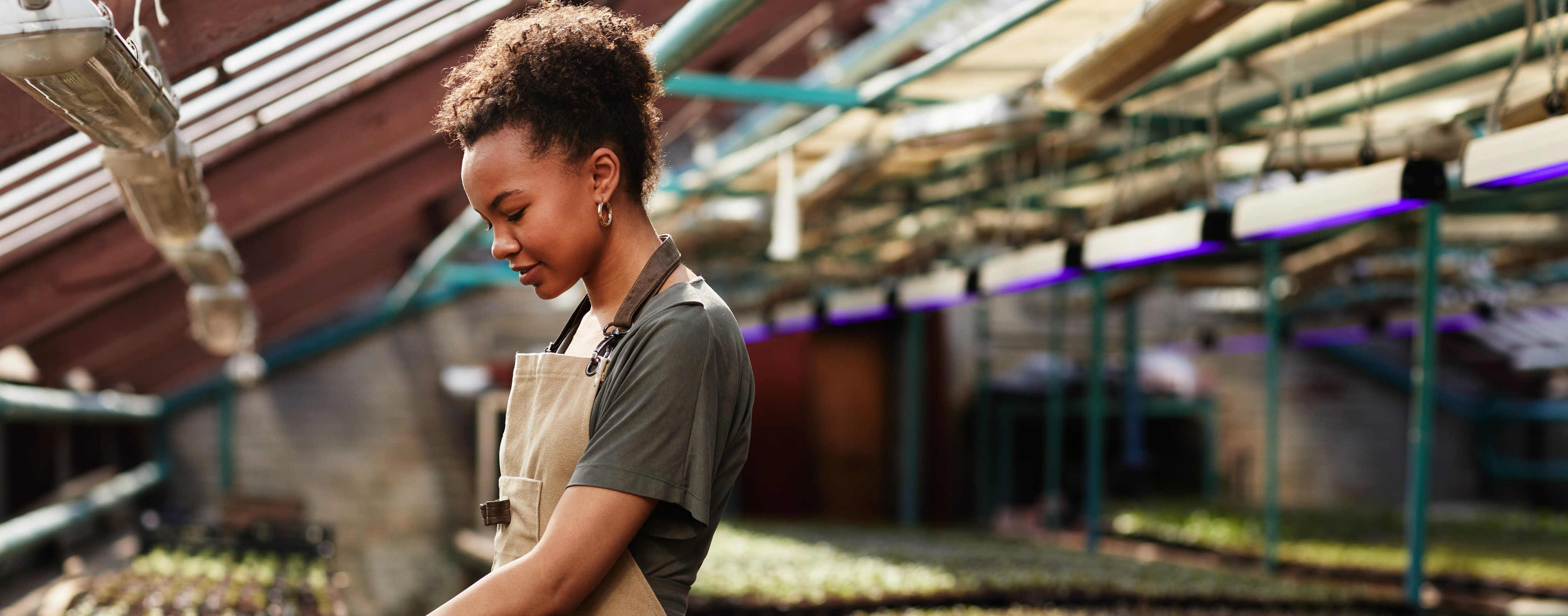
The Circular Food Systems for Rwanda Program, through its Technical Assistance Facility, provides SMEs with access to education, technical assistance, and networking opportunities to help them build and sustain successful circular business models.
In June 2023, the application process for the first cohort of the Technical Assistance Facility opened. Seventy-five applicants from across Rwanda applied and seven were chosen to receive technical assistance provided through the Technical Assistance Facility. Selected SMEs will be paired with technical assistance providers in their sector to receive the support they need to grow their businesses and explore circular economy opportunities in their country.

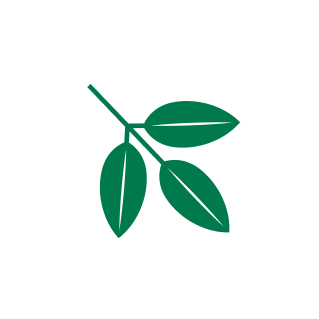
Meet the Seven SMEs: from sustainable agriculture to innovative technology, these entrepreneurs are making an impact and driving positive change.
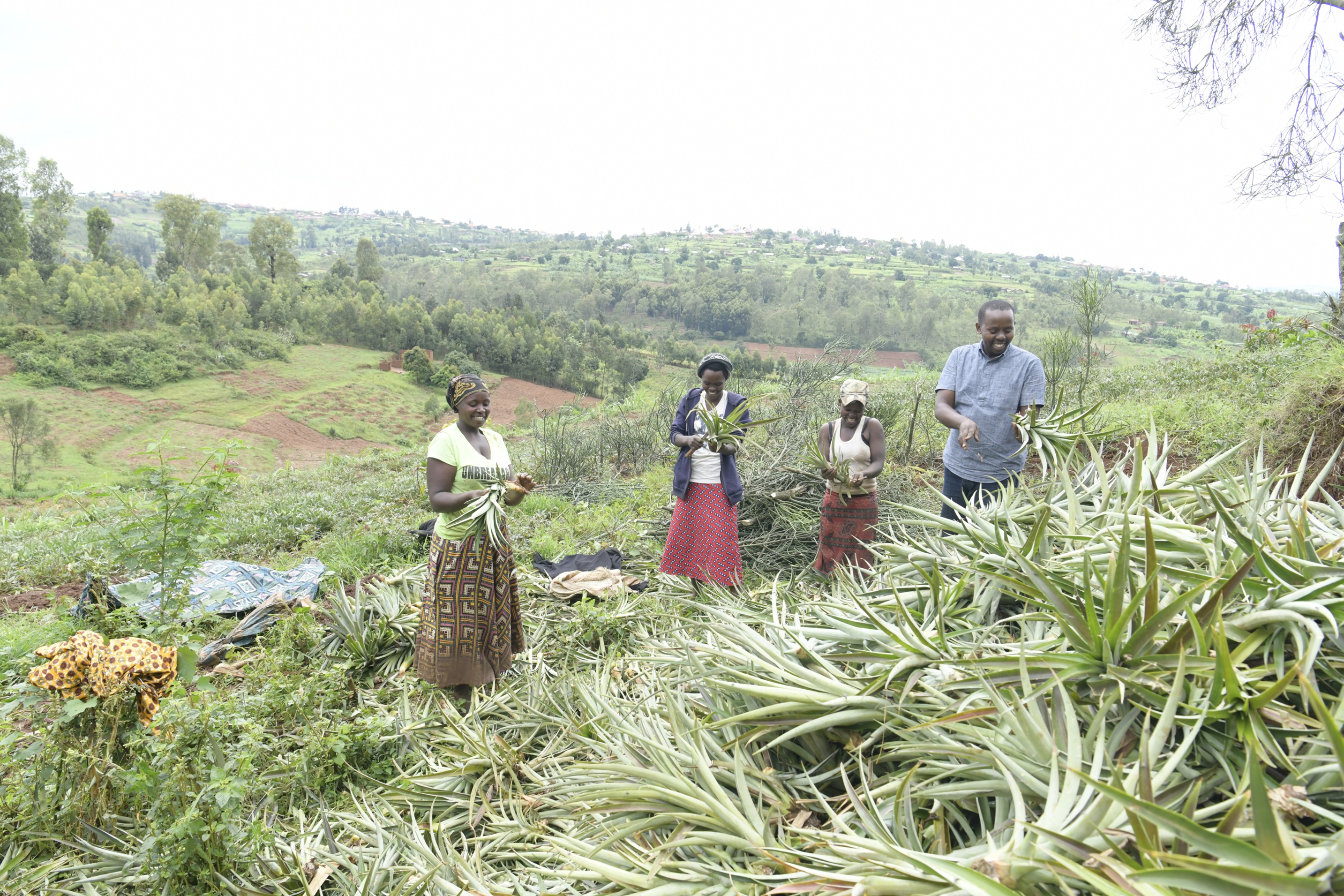
Africa Food Supply (AFS) was established in 2016 to provide locally grown, high quality, nutritional fresh vegetables, fruits, and grains to the national market. They work with local farmers, cooperatives and producers to encourage the adoption of new techniques that improve the quality and quantity of produce. They are also finding new ways to reach their customers, with a thriving farm to table restaurant, and plans for further market expansion.
Much of Africa Food Supply farmland, and their existing buildings are situated at the side of a busy road, an hour southeast of Rwanda’s capital Kigali, on the way to either Kivu to the East or Butare to the south. Serge Ganza, Director of AFS sees this traffic as an opportunity. AFS are in the process of building a roadside stopover, with space for a new coffee shop and eatery, numerous shop front spaces for produce, and —crucial to their plan —high quality, free to access public toilets.
Working with sanitation experts, AFS have developed safe and sanitary systems to collect human waste which can then be combined with other waste products to create compost. Strange as this may seem to some, it is the ultimate circular food system, and can be delivered safely, and with incredible benefits for food production, reducing reliance on imported industrial fertilizers.
This compost will support the increased growth of the full range of fresh agricultural produce, including tomatoes, sweet potatoes, zucchini, pineapples and cucumbers. Motivated to reduce waste, Serge, and the AFS team are also trying and scaling a range of food processing options, to retain high quality products cross-season, including biscuits, doughnuts and mandazi. The company currently caters for local markets in Kamonyi and Kigali, Rwanda, with plans to expand nationwide.
The stopover will also provide year-round sales and staffing opportunities, providing much needed employment to the local community, given that a large percentage of Rwandan employment is seasonal.
“We have a stopover, where we're going to have a market, but I need produce from the farms, from the farmers. So that's why I'm interested to work with farmers. Help them to get more production and then bring it to market. get money for the family, and then make money as a businessman.” Serge Ganza, Managing Director.
Working in partnership with government agencies, like Rwanda Agricultural Board, and inspired by CIRF training, AFS has embraced circular practices which is working to increase food production, improved access to markets, better yields to support national nutrition and employment opportunities.
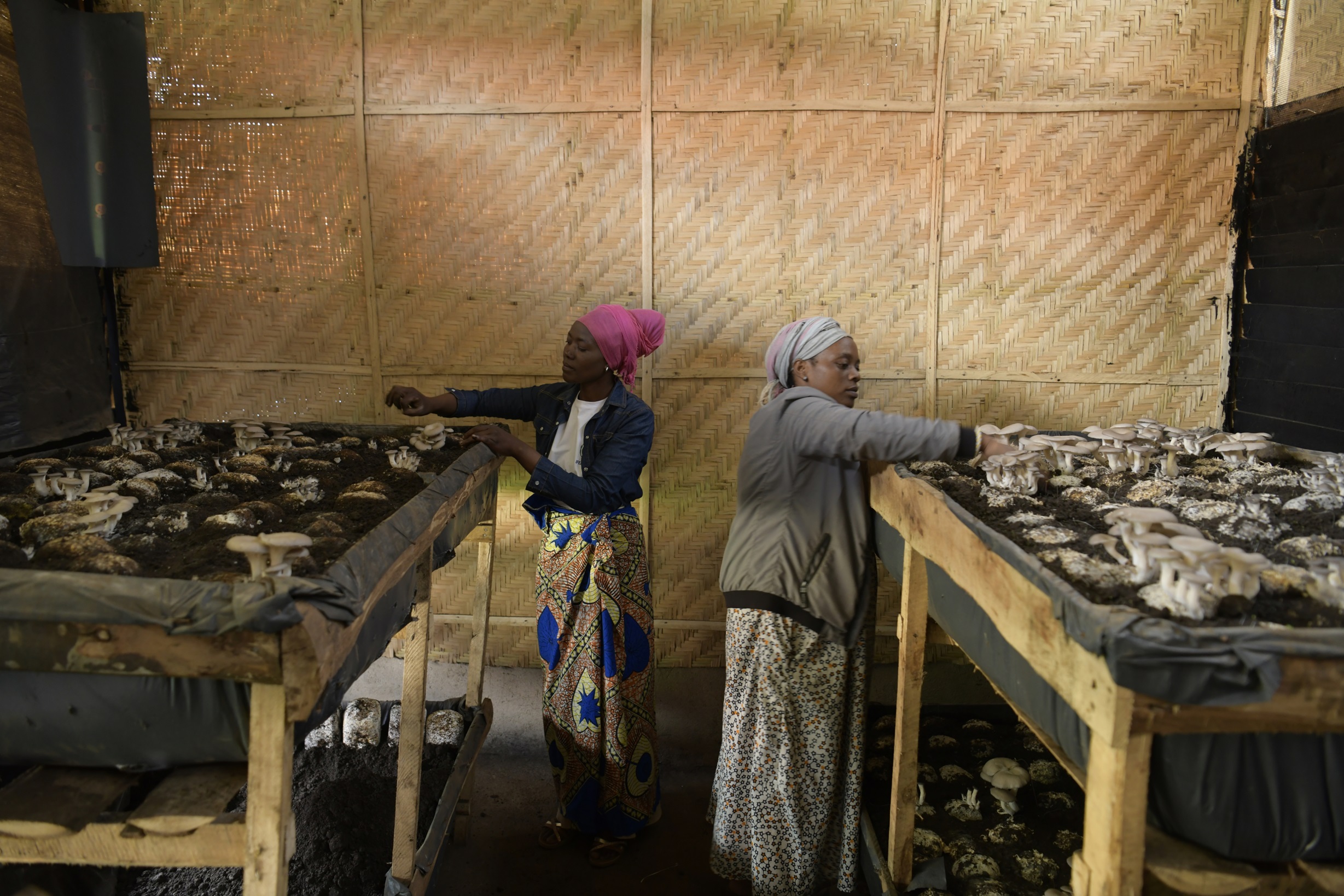
“In our company, we collect waste—coffee waste and agricultural waste. We make mushroom seed, we grow mushrooms. After growing mushrooms, we have mushroom waste. We use mushroom waste to make compost, we use compost in coffee growing. After growing coffee, we collect coffee waste to make mushroom seed again as a cycle. It’s what we call circular economy in the context of Rwanda,” explains Emmanuel, MNB Ltd’s Technical Advisor.
MNB Ltd was established in 2012 to develop practical and sustainable solutions to hunger and malnutrition in Rwanda, specifically addressing the needs of coffee farmers in the Rubavu District. The climate and terrain of western Rwanda are well-suited for high-quality coffee cultivation, which serves as a key cash crop. However, with only one annual coffee harvest, farmers, their families, and the surrounding communities struggled with a single income stream that could not meet year-round expenses, including food and school fees.
The company’s founder, Zilipa Nyirabyago, sought a solution that would diversify income sources for the community. Her vision was to generate additional income and employment by making use of the community’s existing resources.
Coffee pulp, previously discarded as waste, became the answer. It was available in abundance and had a longer shelf life than many agricultural byproducts. MNB began using it to create mushroom substrates. Other mushroom growers in the region have relied heavily on imported cotton husks from Tanzania and Burundi, but MNB significantly reduced that dependency by utilizing local coffee waste.
As wholesale producers of fresh mushrooms, MNB serves the local market and exports to the Democratic Republic of Congo (DRC), thanks to their proximity to the border. While mushroom cultivation has improved nutrition and created jobs in the region, the short shelf life of fresh mushrooms poses challenges, especially in warm climates. To address this, MNB has started processing mushrooms to retain their nutritional value by drying them, along with cassava, to extend their longevity. Reducing waste in the value chain not only increases profit margins but also improves access to mushrooms for consumers.
MNB operates a zero-waste mushroom value chain, where waste is composted, reused, or recycled. Organic compost produced through this process is sold to local farmers. Plastic bags, essential for keeping the mushroom substrate dry during seed formation, are repurposed for growing coffee seedlings, supporting circular practices and further reducing waste.
Inspired by CIRF training, MNB Ltd has identified other potential circular practices, including the development of agro-tourism. The company’s main site on the scenic shores of Lake Kivu offers an opportunity to showcase their circular practices and educate visitors about sustainable farming.
By continuing to train local farmers, sell compost, and provide quality coffee seedlings, MNB promotes waste as a valuable resource and potential income stream. The company is committed to constant innovation, seeking new ways to benefit its business, the community, and the country.
“Step by step, we are only beginning, but next year, 10 years, 5 years from now, we will be in a good position. Because everything in Rwanda—what we used to call waste—will become a product. Everything—product. Waste—product. Waste—product. Product we use to sell, product to generate money,” says Emmanuel, MNB Ltd’s Technical Advisor.
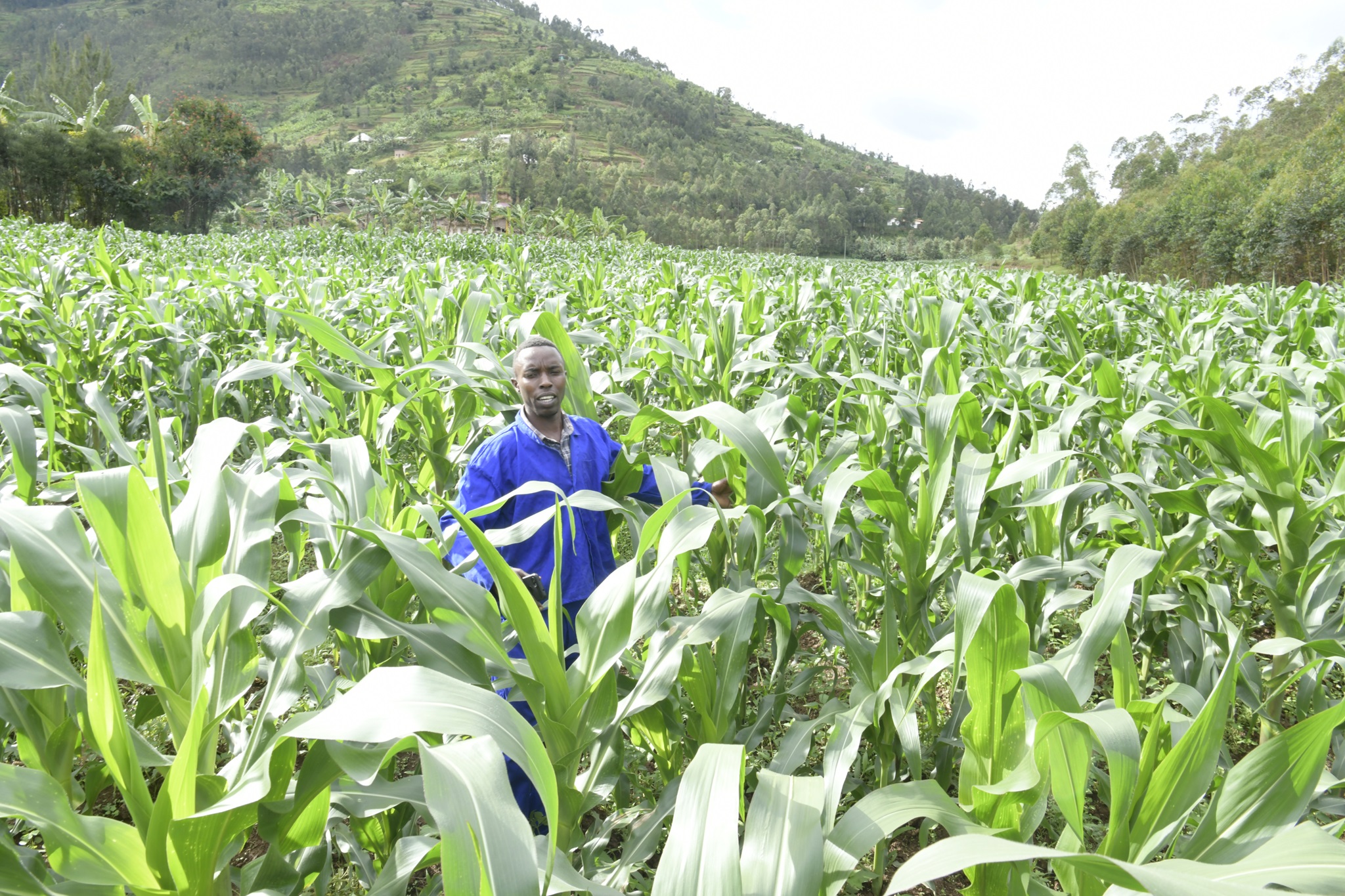
“We do not have more expansion of land and resource; we are just using what we have. We have to maximise the valorisation of what we have without degrading the environment,” explains Eugene Uwineza, Technical Advisor at Next Farm.
Next Farm was established in 2018 with the vision of producing high-quality agricultural products that are both nutritious and sustainable, while minimizing waste and providing local employment. After experimenting with various income-generating ideas, the farm identified pig and maize production as the most sustainable business model.
In recent years, the Rwanda Agricultural and Animal Resources Development Board (RAB) has imported high-yield pig breeds to promote and increase pork production as a priority industry. Pork is considered a luxury item for many Rwandans, but by increasing pork yields, the Government of Rwanda aims to make protein more accessible to the general population and grow the export market. Next Farm works closely with RAB to source high-yield pigs, building a profitable business that benefits both the economy and the local community.
Given the challenges of meat storage and preservation, Next Farm has also diversified into producing sausages and other pork-based products to increase sustainability and expand their market share.
The farm is committed to reducing and reusing waste through the production of compost made from processed maize husk residue and pig manure. This compost is used on their farm to boost maize yields, completing the circular farming process. Additionally, they sell compost to other farmers in the area, supporting sustainable agriculture beyond their own operations. Although they initially began composting two years ago, the CIRF training in early 2024 enabled them to refine and expand their compost production, increasing their output.
“So, the circular economy just helps us valorise all resources that we have without damaging the environment… We hope that it will increase income without needing more investment, more money, or more resources, because we can valorise what is already around us—and these resources are environmentally friendly,” says Eugene.
Next Farm’s focus on circular practices allows them to transform waste into valuable products, supporting both sustainability and profitability. With CIRF technical assistance and marketing support, Next Farm is well-positioned to grow their business and contribute to the development of Rwanda’s pork value chain.
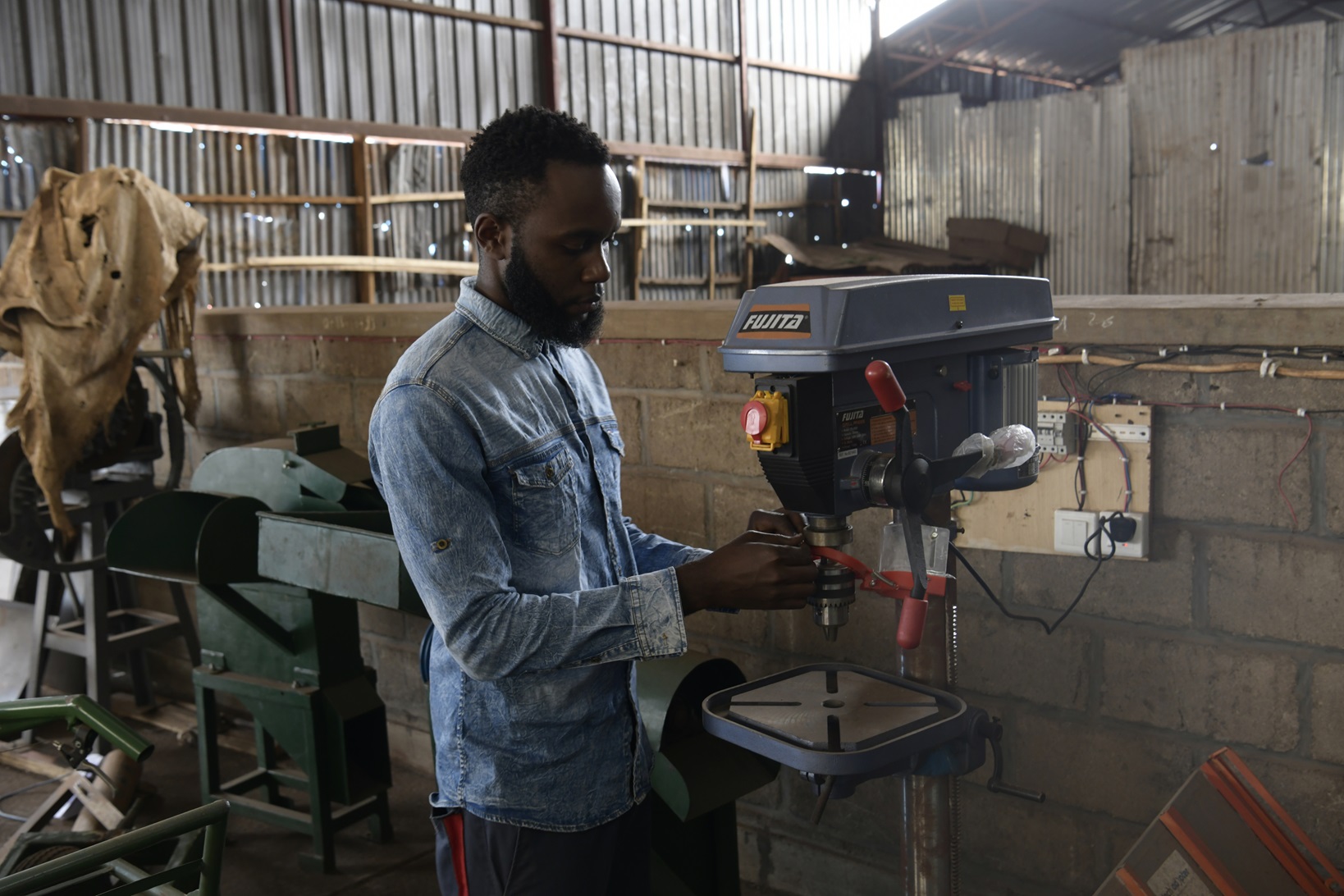
“Circular is very important for agriculture in Rwanda, because it's a kind of sharing opportunities—someone's waste might be someone’s raw materials,” says Israel Niyonshuti, founder of Tech Adopters.
Tech Adopters is an Agri-Tech engineering company on a mission to empower Rwandan farmers with innovative solutions that increase productivity, reduce costs, minimize waste, and improve livelihoods. The company manufactures affordable, customized agricultural equipment to support farmers in harvesting and processing crops more efficiently.
Inspired by the potential of merging engineering with agriculture, Israel founded Tech Adopters to apply his technical knowledge toward addressing agricultural challenges. As the son of two farmers, he has firsthand experience with the obstacles and opportunities faced by farmers in Rwanda. His company continuously develops tools and ideas that enhance harvesting efficiency—an essential innovation as traditional growing seasons become less predictable due to climate change.
The equipment designed by Tech Adopters is made from scrap steel, repurposing material that would otherwise end up in landfills. Every machine is intended to speed up harvesting, helping farmers avoid crop losses and align with seasonal shifts. Israel explains: “We reduce waste by giving farmers equipment that helps them complete their activities quickly. If you are still harvesting when the season ends, and the rains come, you risk losing your crop. If others are planting while you’re still harvesting, it means you’re lagging behind in your agricultural practices.”
To further their mission, Tech Adopters established their workshop in an industrial park in Kigali, ensuring easy access to scrap steel. Through their work, they are inspiring a shift in how the community perceives waste. “When we started collecting waste, people thought we were just going to sell it to companies that mold scrap materials. But when they saw us developing useful equipment from it, they began to recognize the value in that waste.”
Committed to meeting the needs of Rwandan farmers, Tech Adopters builds equipment at various price points—ranging from small, hand-crank maize harvesters to large threshing machines. With advice from CIRF-supported technical advisors, the company is exploring both purchase options and machine loan arrangements to ensure their equipment remains accessible to all farmers. This aligns with their broader goal of supporting sustainable agricultural growth and ensuring no one is left behind.
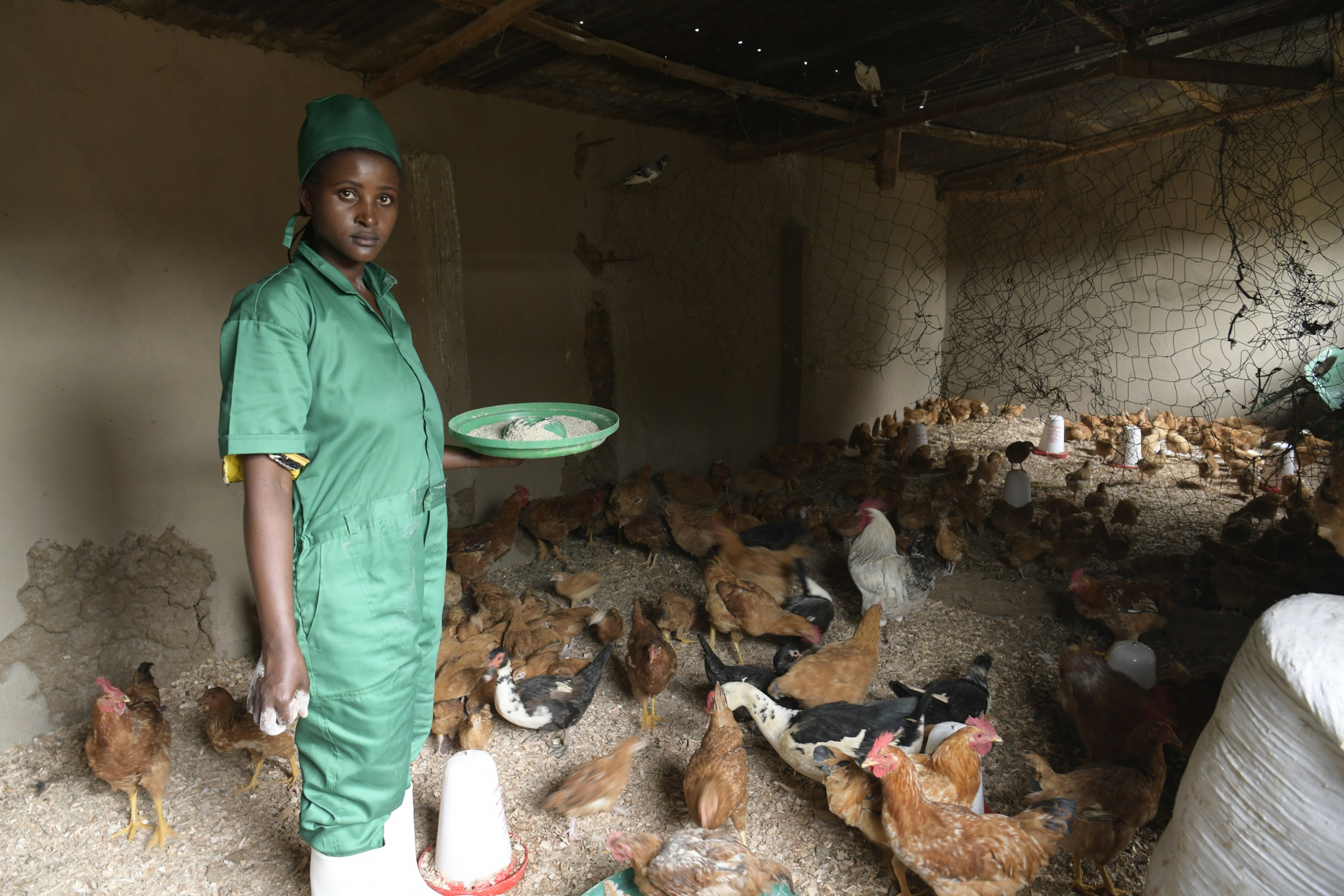
Glory Poultry Farm is a privately owned business founded in 2008 in the city of Kigali, which has now expanded to a full-scale, innovative farm in the Nyagatare District. The farm produces and sells a range of animal and crop products, including pigs, chickens, eggs, milk, watermelons, and rice.
Agatha, the founder and director of Glory Poultry Farm, started with the simple idea of breeding chickens and selling them to local supermarkets early each morning. Working as a civil servant in Kigali at the time, Agatha quickly found that her chicken and egg business was too successful, and she transitioned to full-time farming.
As the business expanded, along with the animal and crop diversity, it wasn’t possible to develop these practices in the increasingly urbanised city of Kigali, and the farm moved to the Nyagatare District in the Eastern Province. More land and increased opportunity, combined with Agatha’s deft understanding of market and opportunity, resulted in continual growth and innovation, including maize farming to reduce the cost of chicken feed, pigs, banana plantations, and, of course, cows.
Identifying customers and market opportunities, as well as gaps in the market for growth, Glory Poultry Farm has diversified its agricultural portfolio to take advantage of crop seasons. Limited by three-season crops, Agatha made the decision to plant continual crops of green beans and rice in the marshlands and watermelons. Customers range from government contracts to local producers, and the farm provides employment for 20 permanent workers and 200 casual employees.
Glory Poultry Farm currently has 400 chickens and hens, with ambitions for 10,000 in the coming months and years. Construction is underway for a new chicken house to accommodate the additional poultry, alongside a separate building for sharing ideas and information about nutrition with the local community. Agatha’s ambition lies not only in building her business but also in encouraging a local market for better nutrition.
"The circular food system is the process where nothing in the system is being wasted. From mouth now, the cow is digesting, it becomes compost, then manure, the cow dung itself, the pig dungs and whatever, those are going to be used for various activities in agriculture," Agatha Mukagacinya, Founder and Director.
Embracing circular practices, Glory Poultry Farm is in the process of developing a compost business from the various waste products on the farm. After working with Technical Assistance Providers as part of the CIRF training, and meeting other SMEs using circular agri-food systems, Glory Poultry Farm is looking to complete the circle and expand its business model with compost. Every new idea from Agatha and the team is building the business and improving their impact, both environmentally and within the community.
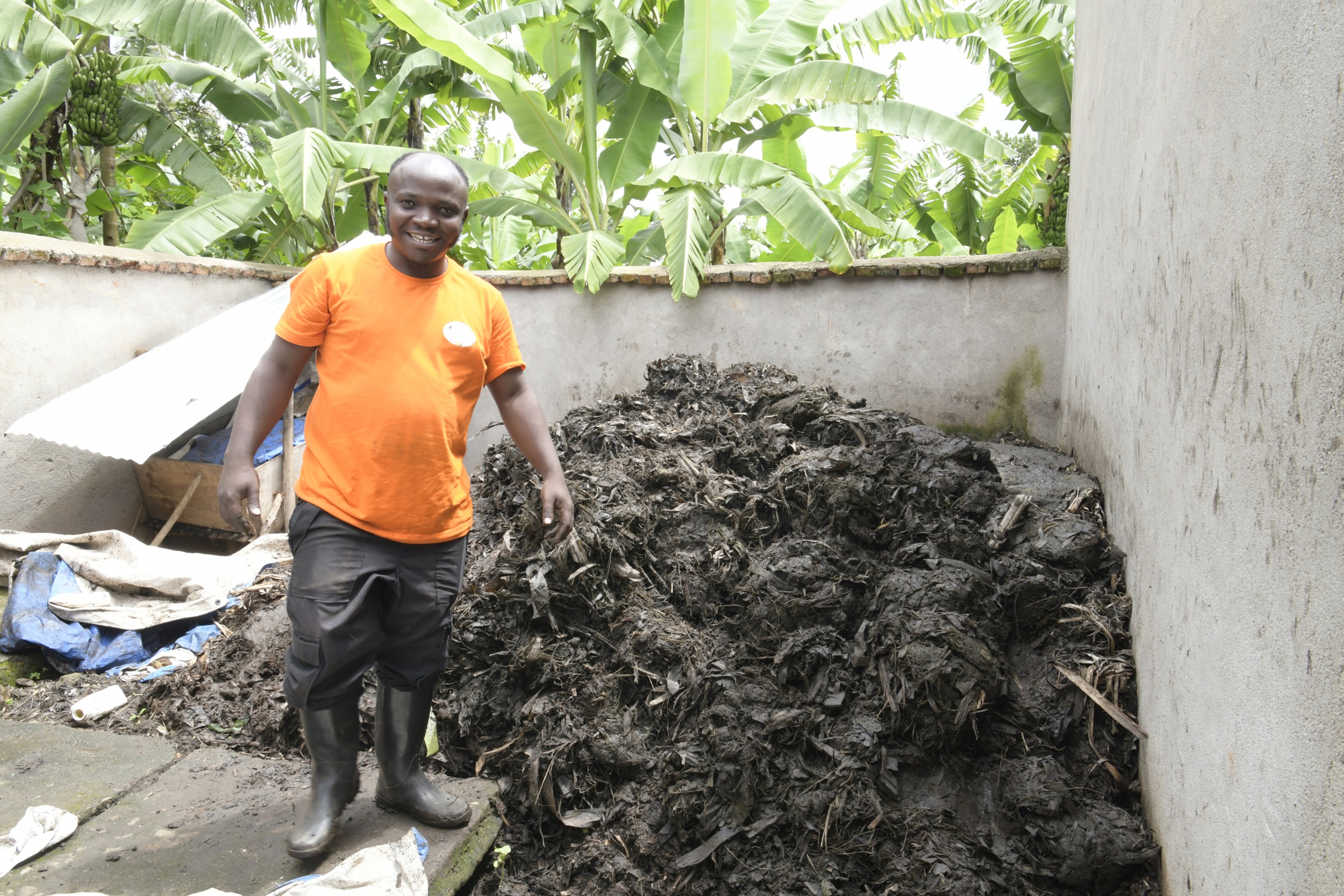
“I want my company, Golden Insect, to bring land to life and life to land,” Dominique Xavio Imbabazi.
Golden Insect is a vermicompost and vermiliquid producer based in Musanze, Ruhigeri, in the Southern Province of Rwanda. The company transforms ten tons of biowaste into organic fertilizer every month. Led by the trailblazing Dominique Xavio Imbabazi, known simply as Xavio, Golden Insect collaborates with the local community by collecting food waste from restaurants, schools, and hospitals. This waste is combined with animal waste and treated with red worms—one of Xavio’s “golden insects.” Through precise turning, watering, and hand-sorting of the compost, these worms help produce high-quality organic fertilizers essential for farmers adopting regenerative or organic farming practices.
In founding Golden Insect, Xavio defied expectations. After earning his diploma, he was expected to enter the traditional job market but instead saw the untapped potential in waste management. Engaging and employing members of his community, he began training schools, hospitals, smallholder farms, and restaurants to properly sort their waste to maximize inputs for the compost. Today, Golden Insect employs waste collectors throughout the region, many of whom use adapted bicycles, affectionately called “the limousines” due to their length.
Golden Insect’s work has profoundly impacted the local community by shifting mindsets about waste and its value. The company provides critical employment to local women, who not only collect waste but also hand-sort compost, and many community members now recognize waste as a resource for transformation. Golden Insect’s practices are inherently circular, benefiting both the environment and the local economy.
“I've learned that I've been doing circular economy without knowing that I'm doing that," Dominique Xavio Imbabazi.
Since participating in the CIRF training, Xavio and Golden Insect have identified further circular opportunities and aim to expand their market. They are currently pursuing government certification, which will facilitate more extensive sales and business growth. By engaging with other SMEs across Africa through the CIRF program, Golden Insect is building capacity through improved business planning and marketing strategies.
“I got a chance to participate in different conferences and sessions, for example, the Africa Climate Summit in Nairobi. I met different SMEs and networked with them. I also exchanged ideas that opened my mind to the extent that I have to redesign and rephrase my working models, marketing models, and other things to ensure that I'm meeting national and international standards when it comes to our products from circular economy practices.”
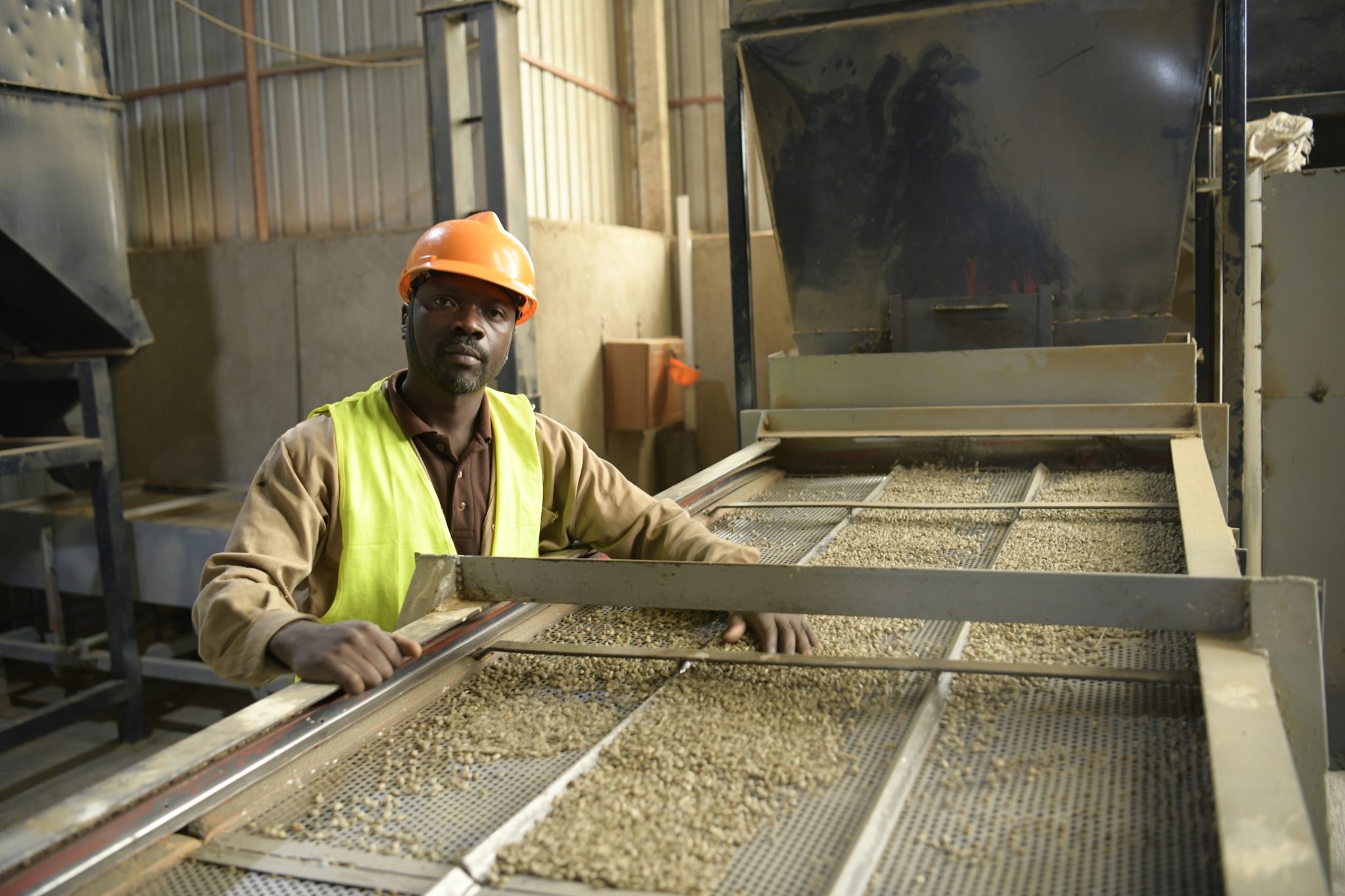
Kigasali Coffee Company was founded in 2016 to process coffee from farm to export and now contributes to Rwanda’s estimated 20,000-ton annual coffee export industry.
With six washing stations across four districts, Kigasali collects washed coffee and transports it to its headquarters in Kigali, where the beans are sorted, graded, and processed. After drying, the beans are hand-selected by teams of women before final processing, with coffee husk waste separated and stored. Kigasali employs over 200 permanent staff and 300–400 seasonal workers across Rwanda, with 90 percent of its workforce consisting of women.
Kigasali Coffee Company continuously looks for ways to improve product quality and cost-effectiveness, especially by reusing coffee waste. Recently, they began using fresh coffee pulp to produce organic fertilizers. While they previously sold much of their waste to other farmers, after CIRF training, the company started seeking new opportunities to generate income through circular practices.
“We have been trained, we managed to understand that it is our concern to eliminate all kinds of waste from our activities. And, from that waste, we can make a product which can be sold to increase the revenues of the company,” says Japhet Habimana, Communications Director.
Coffee waste and pulp are also being transformed into pellets and briquettes—biofuel alternatives that are less harmful to the environment than traditional firewood stoves.
“In the future, we will no longer sell this husk as waste; it will produce something else, like making pallets or briquettes,” explains Marie Therese Nyampinga, Coffee Selection Overseer.
Firewood is the primary cooking fuel in Rwanda, but its environmental and health consequences have led the government to push for cleaner alternatives, creating a market opportunity for Kigasali to develop new products from coffee waste.
Inspired by CIRF training, the company now views waste as an opportunity.
“For the coffee processing, when we take the cherries, we do the pulping by using water. We proceed also by the fermentation and washing—we use water. For grading, we use water. For soaking, we use water. After one day, we have the coffee, we have the wastewater—it is a waste that we can see how we can reuse to minimize or manage the cost of production.”
The company is committed to aligning circular practices with its overall business goals to increase revenue and sustainability.
“After being aware about the circular economy, we realized that we have to sit and see what we can do, like water recycling. We can take the pulps, we can make compost, and that compost will be used in the coffee farming, contributing to increased production in quality and quantity.”
Meet the 1st CIRF Cohort SMEs
In this short film, you can meet the SMEs from the first cohort and see the real-life impact the project is having on these enterprises. The CIRF Project connects small and medium enterprises working across Rwanda's agricultural and food sectors with technical assistance providers (TAP). The TAPs work closely with SMEs to design bespoke collaborations to help them adopt and scale circular business models.
